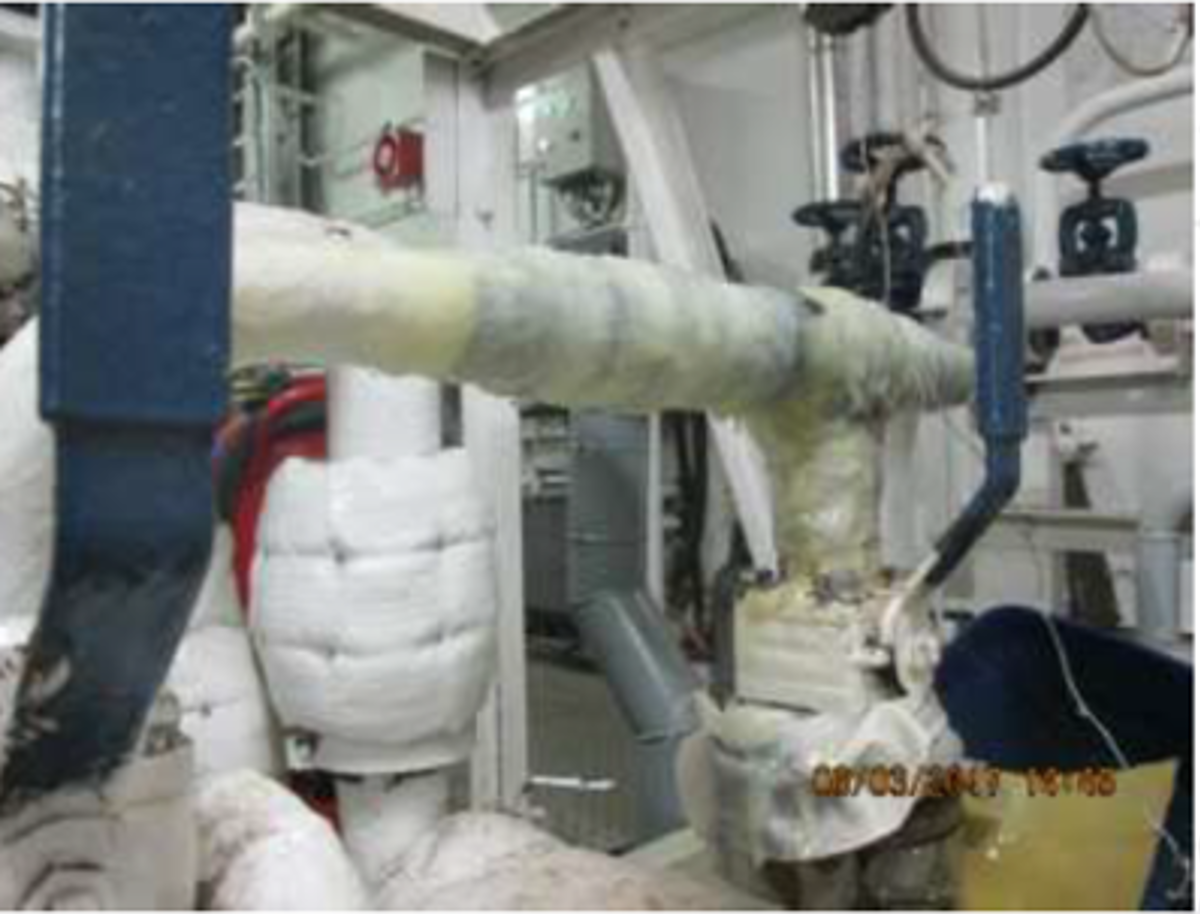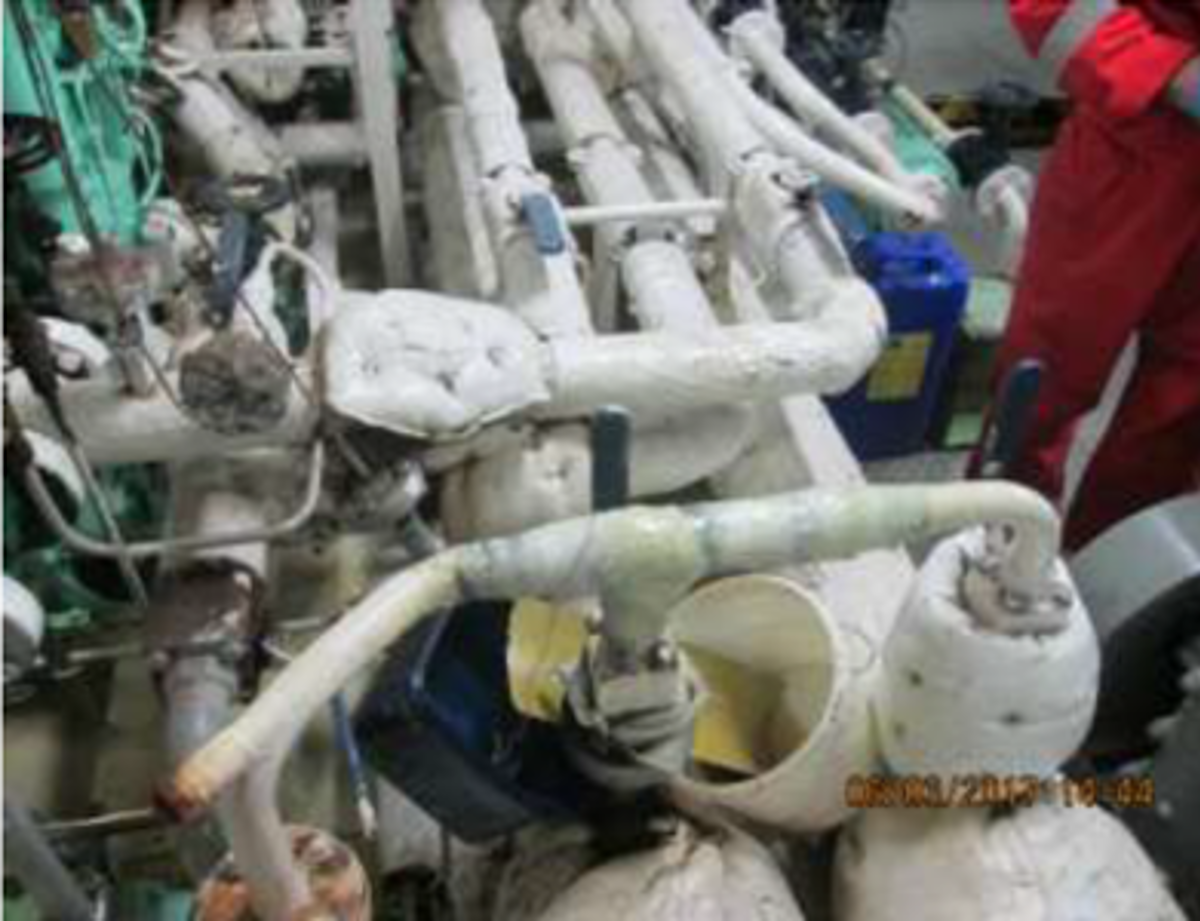Near-miss: Fire hazard from leaking fuel supply line
- Safety Flash
- Published on 25 May 2017
- Generated on 1 March 2026
- IMCA SF 12/17
- 2 minute read
Jump to:
A potential fire hazard was discovered, caused by a failed fuel pipe connection on the supply line to the main engines.
What happened?
The Chief Engineer was called to engine room with a report of a leak on a low pressure fuel supply line supplying both main engines. Upon arriving in the engine room and assessing the situation, a temporary repair was effected, due to being unable to isolate the pipe. Self-amalgamating tape was used to reduce the leak to a weep and then fibre-glass resin and bandage was applied, to try and seal the weep.
At the time, both main engines were running with the starboard engine on load, although the port propeller was declutched. Three auxiliary engines and all the thrusters were on load.

temporary repairs to the pipe

complex shape and fitting of the pipe
What were the causes of the incident?
The immediate cause was found to be a failed weld on a T-piece of the pipe.
The root cause is believed to be the age of the pipe, an original fit from the vessel’s construction, incurring natural degradation over time.
Actions taken and lessons learned
- The leak was discovered early as a result of due diligence and good watchkeeping, which allowed for a controlled temporary repair.
- The vessel notified shore management as soon as possible after the incident, providing detailed Incident reports, supporting information and photographs.
- Vibration, owing to the proximity of the main engines, is going to be an issue with equipment of this sort. Engineers should maintain awareness of equipment shortcomings and manufacturing design weaknesses.
- As such failures cannot always be predicted and vessels should always carry appropriate pipe repair solutions such as plastic steel, fibre glass resin, pipe repair clamps etc.
In this case, a trend in the failure of fuel supply piping was noticed; this was the 4th failure within 4 months.
Related safety flashes
-
IMCA SF 06/17
21 March 2017
-
-
IMCA SF 24/16
20 September 2016
-
IMCA SF 08/03
3 July 2003
IMCA Safety Flashes summarise key safety matters and incidents, allowing lessons to be more easily learnt for the benefit of the entire offshore industry.
The effectiveness of the IMCA Safety Flash system depends on the industry sharing information and so avoiding repeat incidents. Incidents are classified according to IOGP's Life Saving Rules.
All information is anonymised or sanitised, as appropriate, and warnings for graphic content included where possible.
IMCA makes every effort to ensure both the accuracy and reliability of the information shared, but is not be liable for any guidance and/or recommendation and/or statement herein contained.
The information contained in this document does not fulfil or replace any individual's or Member's legal, regulatory or other duties or obligations in respect of their operations. Individuals and Members remain solely responsible for the safe, lawful and proper conduct of their operations.
Share your safety incidents with IMCA online. Sign-up to receive Safety Flashes straight to your email.